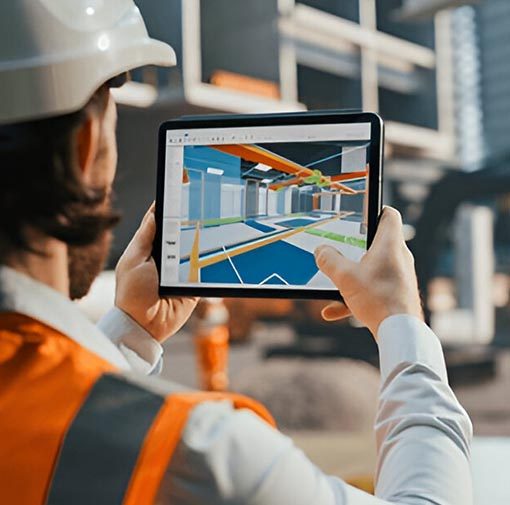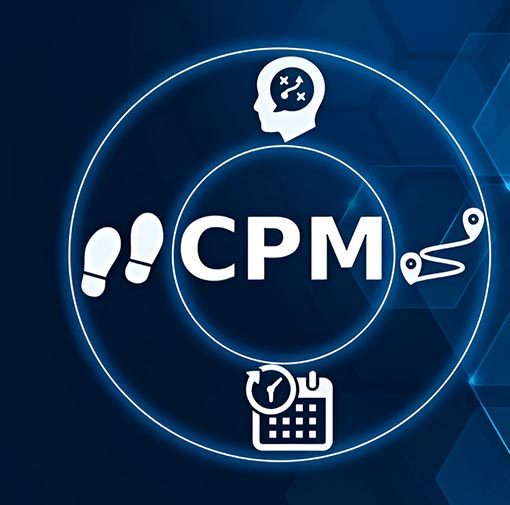
Complete Guide to Residential Construction Estimating & Cost Estimation Services in 2025
As the construction industry continues to evolve, the demand for accurate cost estimates in residential projects has never been higher. With rising material prices and labor costs in 2025, property developers, homeowners, and contractors are increasingly relying on a skilled construction estimator to deliver precise budgeting insights. These cost estimation services not only provide clarity and control over project expenses but also help reduce risk, avoid budget overruns, and improve planning during the early phases of construction.
A professional construction estimator plays a critical role in pre-construction planning, ensuring that every aspect of a build — from drywall to electrical systems — is calculated with care. In today’s competitive landscape, leveraging advanced tools and expert-led cost estimation services is essential for streamlined construction budgeting and execution.
What is Residential Construction Estimating?



Residential construction estimating is the process of forecasting the total costs required to complete a residential building project. This includes assessing labor, materials, equipment, overhead, and other direct or indirect expenses. A qualified construction estimator reviews blueprints, specifications, and site conditions to prepare an accurate cost breakdown.
Why It Matters
- Helps manage project finances from day one
- Enables better decision-making during pre-construction planning
- Prevents budget blowouts and unexpected costs
- Supports contractors with realistic bids and schedules
Estimators rely on material takeoff lists and local labor and materials pricing to ensure accuracy in every phase of planning.
Key Components of Cost Estimation Services
Material Estimation
Accurate material projections form the backbone of effective cost estimation services. This involves calculating drywall sheets, lumber, wiring, insulation, and finish materials based on project scope. A professional construction estimator uses local data to produce reliable figures.
- Building materials quote comparison tools
- Regional price trends for gypsum, copper, and timber
- Waste factor calculations for efficient ordering
- Strategic sourcing from local and national suppliers
Labor Estimating
Labor is one of the largest components in residential construction estimating. Estimators factor in trade type, project size, and regional pay rates to forecast costs with precision.
- Hourly labor cost and subcontractor availability
- Seasonal trends in skilled labor pricing
- Trade-specific staffing like electricians and HVAC techs
Equipment and Overhead
Reliable cost estimation services also include equipment usage and overhead costs. From lifts and scaffolding to insurance and admin fees, every expense is considered to ensure full budget visibility.
- Equipment rental cost by duration and type
- Contractor overhead including permits and insurance
- Inclusion of project-wide indirect costs for accuracy
Drywall Estimating: What You Need to Know



Estimating Drywall Cost for Residential Projects
In residential construction, drywall installation is one of the most common yet cost-sensitive tasks. Accurate drywall estimating ensures you avoid delays, eliminate material waste, and keep your budget on track. Whether you’re building new homes or remodeling, a professional construction estimator uses tools like a drywall square footage calculator or advanced takeoff software to precisely determine quantities.
Key steps involved in estimating drywall cost include:
- Using standard formulas to estimate drywall sheet requirements
- Accounting for ceiling height variations, soffits, and angled walls
- Including materials for taping, joint compound, fasteners, and corner beads
- Adjusting for local drywall sheet cost based on region and supplier pricing
Professionally prepared drywall takeoffs allow contractors to streamline procurement and reduce waste. When combined with cost estimation services, it results in greater accuracy and efficiency on site.
The keywords estimating drywall cost, estimate drywall, drywall estimating, and estimating drywall costs represent essential queries that builders and contractors use when searching for solutions — making it vital that your estimate reflects real-world complexity and current pricing.
Common Mistakes in Drywall Estimating
Even small miscalculations in drywall estimates can lead to significant cost overruns. Some of the most frequent mistakes include:
- Underestimating wastage factors for irregular cuts or off-cuts
- Failing to consider ceiling offsets and specialty architectural features
- Ignoring deductions for windows, doors, and open wall sections
- Not including finishing materials like joint tape or corner trim
These oversights can result in drywall wastage, delayed schedules, and budget imbalances. By working with a skilled construction estimator, contractors can mitigate these risks and deliver projects on time and within the financial plan.
Accurate residential construction estimating practices especially when it comes to drywall—are essential for avoiding costly mistakes and optimizing your material and labor use from day one.
CPM Scheduling in Residential Construction
What is CPM Scheduling?
CPM scheduling, or Critical Path Method, is a powerful project management technique widely used in residential construction estimating. It enables contractors and project managers to determine the minimum time required to complete a build by mapping out every activity, its duration, and dependencies.
By identifying the critical path — the sequence of tasks that directly affects the project’s finish date a construction estimator can highlight which delays will impact the overall timeline. This forecasting method ensures every phase is aligned with labor availability, material deliveries, and inspections.
Key elements of effective CPM scheduling include:
- Visual Gantt charts showing task sequences and durations
- Identification of high-risk delays along the critical path
- Seamless integration with modern construction scheduling software
This structured approach gives contractors and stakeholders a clear roadmap to deliver residential projects on time and within budget.
Benefits of CPM Scheduling for Cost Control
Implementing CPM scheduling in residential builds goes beyond just time management—it’s a key element of successful cost estimation services. Time is money in construction, and delays often translate into increased labor and equipment rental costs.
Top benefits include:
- Optimized labor deployment and material delivery timing
- Minimized project delays through proactive planning
- Better coordination across subcontractors and teams
- Enhanced use of project management tools for schedule tracking
- Real-time scheduling adjustments to mitigate financial impact
In today’s fast-paced environment, residential construction estimating must account for both direct costs and timeline efficiency. Accurate CPM scheduling supports smarter resource allocation, improved cash flow, and reduced risk—making it indispensable to modern estimating practices.
Electrical Estimating Services
Estimating Electrical Work for Residential Projects
When it comes to residential construction, accurate and comprehensive electrical estimating services are critical to both budgeting and safety. These services cover essential tasks like outlet installation, panel wiring, lighting, surge protection, and even smart home system integration. A reliable construction estimator ensures each component is evaluated based on local pricing and regulatory standards.
Professional estimators utilize tools like an electrical cost calculator to determine material quantities and labor hours. This includes:
- Precise inclusion of conduit, panels, breakers, fixtures, and cabling
- Layout and pricing of switchboards and control panels
- Load balancing and subpanel placement
- Planning based on local code and full NEC compliance
These details contribute to accurate residential construction estimating, helping contractors prepare comprehensive bids and homeowners avoid unexpected expenses.
We are Certified Estimation company in USA










Importance of Accuracy in Electrical Estimating
Accurate electrical estimating services go beyond cost—they are essential for ensuring safety, meeting code requirements, and staying on schedule. Poor estimation in this area can result in:
- Budget overruns and unexpected change orders
- Delayed inspections due to code violations
- Rework costs from design errors or missing materials
- Safety risks from overloaded circuits or inadequate wiring plans
Detailed estimates provide:
- Budget integrity from design to installation
- Adherence to overall construction scheduling
- Faster permitting and inspection approvals
- Efficient labor planning and fewer material overages
Professional construction estimators rely on electrical blueprint reading, detailed schematics, and supplier data to ensure accuracy from pre-construction planning through final walkthrough.
Why Hire a Professional Construction Estimator?
Bringing in a professional construction estimator gives you access to expert insights and proven methodologies. Whether you’re a homeowner or developer, cost estimation services ensure:
- Data-backed forecasts
- ROI-driven decisions
- Reduced risk of cost overruns
- Faster project approval and smoother execution
From estimating consultants to freelance estimators, professionals help you build with confidence.
Tips to Improve Construction Estimating Accuracy
- Use past project data to predict new job costs
- Apply unit cost tracking and local pricing updates
- Adopt tools that minimize error and maximize speed
- Regularly compare budget vs. actual to reduce cost variance
- Avoid common estimating pitfalls with checklists and audits
With precise forecasting, teams improve accuracy and reduce costly error reduction efforts later in the build.
Conclusion: Why a Construction Estimator and Cost Estimation Services Matter
Residential construction in 2025 demands precision, speed, and cost control. With material prices and labor costs fluctuating, relying on a skilled construction estimator is no longer optional; it’s essential. From drywall to electrical systems, professional cost estimation services support smarter planning, reduce risk, and protect your bottom line.
To streamline your next project, consult an expert in residential construction estimating. Accurate estimates lead to confident builds and successful outcomes.


